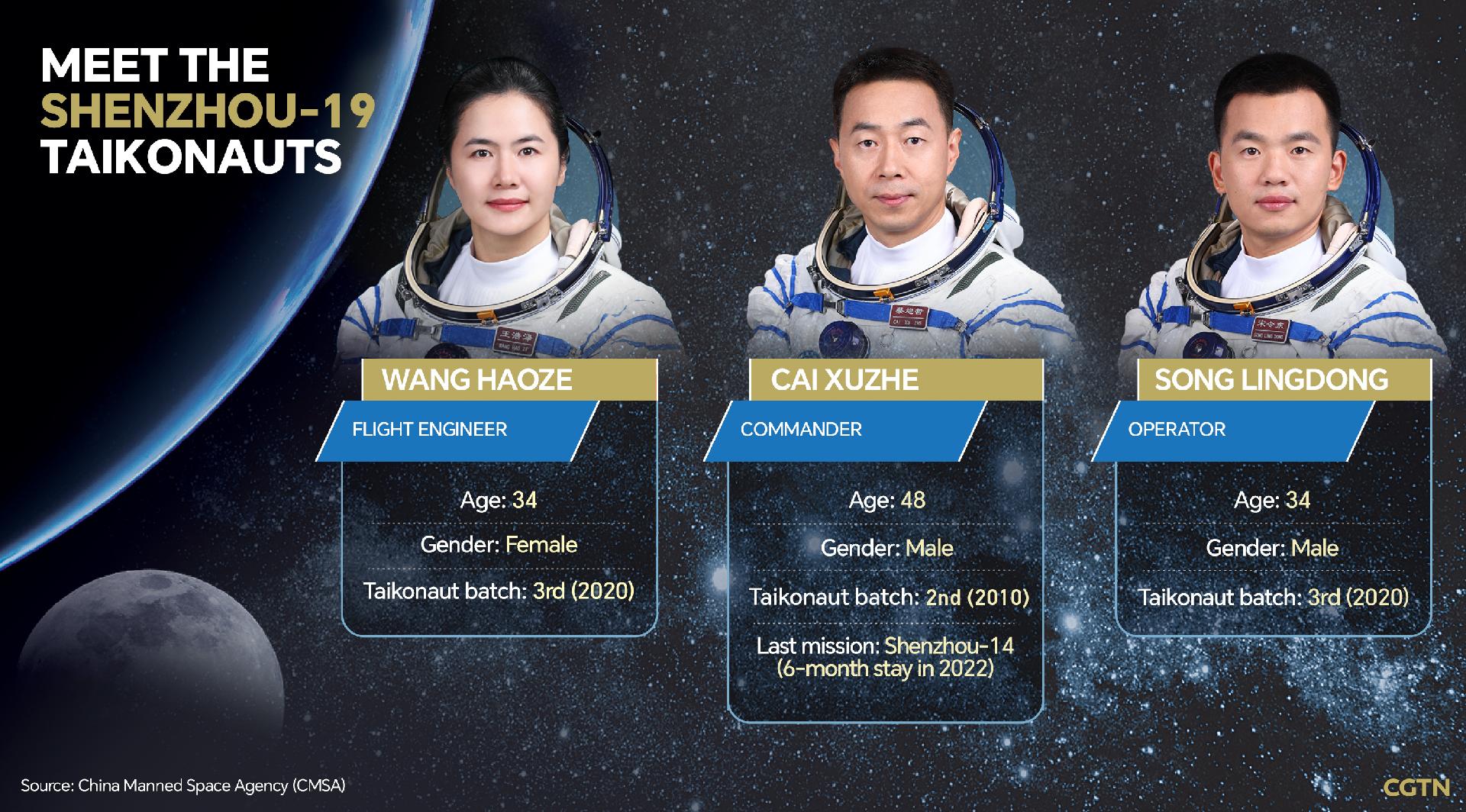Introducing the Shenzhou-19 Crew: China Describes Space Mission as a "Relay Race"
Discover the Shenzhou-19 crew as they embark on a significant space mission that resembles a relay race. This article delves into the details of their journey and highlights the team's collaborative efforts in advancing China's space exploration.

The launch of the Shenzhou-19 spaceship is set for 4:27 a.m. on Wednesday from the Jiuquan Satellite Launch Center in northwest China, according to the CMSA.
On Tuesday, the three Shenzhou-19 taikonauts addressed the media at the launch center. Cai completed the Shenzhou-14 space mission in 2022. In contrast, Song and Wang, both born in 1990 and part of the third batch of Chinese astronauts, are making their spaceflight debuts.
Learn more about the Shenzhou-19 mission.
Cai Xuzhe
Cai was born in 1976 and enlisted in the Chinese People's Liberation Army Air Force in 1995. He was selected to join the second batch of Chinese astronauts in 2010.
During his first mission to space, Cai experienced a particularly demanding six months, witnessing the completion of the space station's basic structure and achieving many milestones, including the first crew turnover in orbit with the Shenzhou-15 crew.
"It is because of the support from our country and its people that we have the opportunity to visit the space again and again," he stated during the press conference.
In March 2023, Cai was awarded a third-class medal and received the honorary title of "heroic astronaut."
Song Lingdong
Born in August 1990, Song transitioned from pilot to taikonaut, nurturing a lifelong dream of traveling to space.
"Twenty-one years ago, at the age of 13, my classmates and I sat in front of the television, watching the successful launch of Shenzhou-5. Filled with awe, the seed of the dream to fly to space was sown," he recounted during the press event.
Song acknowledged that his participation in the Shenzhou-19 mission is a result of "the strength of his homeland, the continuous efforts of generations of space pioneers, and the greatness of this new era."
"I will carry the 'flying' baton well, showcasing the spirit of my generation and writing the glory of the nation across the cosmos," he added.
He was selected as part of China's third batch of astronauts in September 2020.
Wang Haoze
Wang, born in March 1990, is currently China's only female flight engineer and will be the third Chinese woman to participate in a crewed spaceflight mission.
Prior to her selection in the third batch of astronauts, Wang served as a senior engineer at the Academy of Aerospace Propulsion Technology under the China Aerospace Science and Technology Corporation.
Reflecting on her journey from designing rockets to flying in one, Wang expressed gratitude to everyone in the space technology field.
"I want to fly around in our 'space mansion' and experience the joy of weightlessness. I want to diligently complete every task and protect our 'space home.' I also wish to roam through the depths of space and wave to the stars. Above all, I want to catch a glimpse of my motherland that nurtured me," she shared.
The crew will carry out 86 space science research and technological experiments, with expected scientific advancements in areas such as fundamental theory research, new material preparation, mechanisms of space radiation, and the physiological effects of microgravity, along with studying the biological effects of a hypomagnetic field and molecular mechanisms.
Emily Johnson for TROIB News
Discover more Science and Technology news updates in TROIB Sci-Tech












